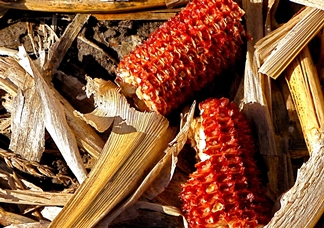 POET LLC, the largest U.S. ethanol producer, and Royal DSM, a Netherlands-based company, will invest USD 250 million to commercialize ethanol production from discarded corn cobs and stalks. The companies said they hope to start production on the cellulosic ethanol project in the second half of 2013, with initial production of 20 million gallons. Eventually, the joint venture plans to expand the project to POET’s other 26 corn-based ethanol plants, and then license it to other ethanol companies’ plants.
POET LLC, the largest U.S. ethanol producer, and Royal DSM, a Netherlands-based company, will invest USD 250 million to commercialize ethanol production from discarded corn cobs and stalks. The companies said they hope to start production on the cellulosic ethanol project in the second half of 2013, with initial production of 20 million gallons. Eventually, the joint venture plans to expand the project to POET’s other 26 corn-based ethanol plants, and then license it to other ethanol companies’ plants. Jeff Broin, POET Chief Executive, said the venture hopes to have the technology licensed to “hundreds” of plants within the next eight to ten years.
Royal DSM N.V. is active in a range of industries from pharmaceuticals to plastics and will apply its yeast-fermentation process to the project. The venture will be based in South Dakota, but the first project will take place at a plant being built next to POET’s existing corn-based ethanol plant located in Emmetsburg, Iowa.
POET is declining an already-approved USD 105 million federal loan guarantee issued through the Department of Energy, as Broin said Royal DSM’s involvement makes the loan unnecessary.
POET’s project differs from others in that it relies on a pre-existing infrastructure in the nation’s corn belt for ethanol production. Since 2008, POET has been developing the project in Emmetsburg using the discarded corn cobs and other residue, or “stover”, left over in fields after the crop is harvested. The company has also addressed concerns about how taking the post-harvest remnants from the field could impact soils.
DuPont Co. (DD) has a similar project, and is planning to begin construction of a biorefinery in Nevada, Iowa this year that will also use corn residues left over from the harvest. The chemical company is working with Iowa State University to fine-tune the process. Upon completion, the plant’s capacity will be 27.5 million gallons.
POET and Royal DSM will each hold a 50% share in the joint venture. The USD 250 million investment is subject to regulatory approvals and does not include expansion beyond the initial plant.

